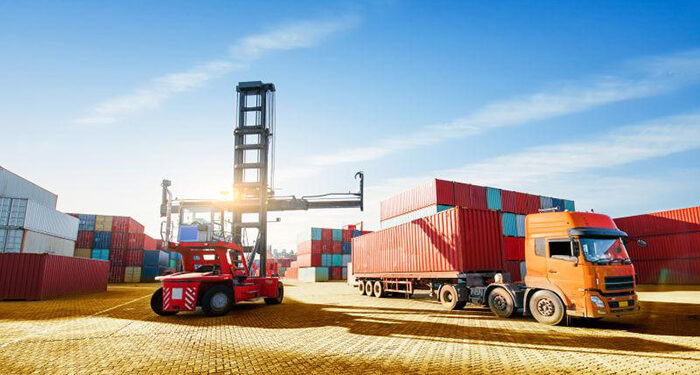In today’s global market, shipping goods from China to the UK is a common practice for businesses and individuals alike. This comprehensive guide will provide you with everything you need to know about shipping from China to the UK, including the different shipping methods, factors influencing shipping costs, and tips for reducing expenses.
Understanding Shipping from China to the UK
Shipping goods internationally involves several steps, from choosing the right shipping method to understanding customs regulations. Whether you’re a business owner looking to import products or an individual sending packages, it is crucial to grasp the nuances of shipping from China to the UK.
Shipping Methods
When it comes to shipping from China to the UK, you have several options. The best method for you will depend on your specific needs, including the nature of the goods, your budget, and your timeline. Here are the primary shipping methods available:
- Air Freight
- Speed: Air freight is the fastest shipping method, making it ideal for urgent shipments.
- Cost: It is more expensive compared to other methods, especially for heavier items.
- Best For: High-value items, electronics, and perishable goods.
- Sea Freight
- Speed: Sea freight is slower than air freight, often taking several weeks.
- Cost: It is the most cost-effective method for large, heavy shipments.
- Best For: Bulk goods, raw materials, and large machinery.
- Rail Freight
- Speed: Faster than sea freight but slower than air freight, rail freight provides a middle-ground option.
- Cost: Generally more affordable than air freight.
- Best For: Medium-sized shipments that require a balance between cost and speed.
- Courier Services
- Speed: Courier services like DHL, FedEx, and UPS offer fast, door-to-door delivery.
- Cost: More expensive for large shipments but convenient for small packages.
- Best For: Documents, small parcels, and personal items.
Factors Influencing Shipping Costs
Shipping cost from China to the UK can vary significantly based on several factors. Understanding these factors will help you estimate expenses accurately and find ways to save money.
- Weight and Volume
- Impact: Heavier and bulkier items incur higher shipping costs.
- Optimization: Use efficient packaging to reduce volume and weight.
- Shipping Method
- Impact: Air freight is generally more expensive than sea or rail freight.
- Selection: Choose the method that aligns with your budget and timeline.
- Distance and Route
- Impact: The shipping route and the distance between the origin and destination ports affect costs.
- Route Planning: Select optimal routes to minimize expenses.
- Customs Duties and Taxes
- Impact: Import duties and taxes in the UK add to the overall shipping cost.
- Compliance: Ensure accurate documentation to avoid delays and additional charges.
- Insurance
- Impact: Insuring your shipment against loss or damage increases costs.
- Risk Management: Assess the value and risk to determine the necessity of insurance.
Estimating Shipping Costs
To estimate the shipping cost from China to the UK, consider all the influencing factors. Online shipping calculators provided by major carriers can give you a rough estimate. Here are some examples of typical shipping costs:
- Air Freight: For small parcels, air freight costs range from $5 to $10 per kilogram. Larger shipments may incur higher rates due to volumetric weight calculations.
- Sea Freight: Shipping a 20-foot container via sea freight can cost between $1,000 to $2,500. Rates vary based on the volume and weight of the goods.
- Rail Freight: Costs for rail freight are generally lower than air freight but higher than sea freight, making it a viable middle option.
Tips for Reducing Shipping Costs
- Consolidate Shipments
- Strategy: Combine smaller shipments into one larger shipment to take advantage of bulk shipping rates.
- Benefit: Reduces the overall cost per unit.
- Negotiate with Carriers
- Strategy: Regular shippers can negotiate better rates with carriers based on volume and frequency.
- Benefit: Secure discounted rates for long-term shipping needs.
- Optimize Packaging
- Strategy: Use efficient packaging to minimize volume and weight without compromising the safety of the goods.
- Benefit: Lowers shipping costs by reducing the space occupied.
- Plan Ahead
- Strategy: Avoid last-minute shipping to take advantage of cheaper rates for non-urgent deliveries.
- Benefit: Reduces costs by allowing more flexibility in shipping schedules.
Navigating Customs
Shipping from China to the UK involves navigating customs regulations, which can be complex. Ensuring that you have all the necessary documentation and understanding the customs process can help prevent delays and additional costs.
- Required Documentation
- Commercial Invoice: Details the value and nature of the goods.
- Packing List: Lists all items in the shipment.
- Bill of Lading/Airway Bill: Proof of shipment and receipt of goods.
- Certificates: Any required certificates, such as certificates of origin or product-specific certificates.
- Customs Duties and Taxes
- Assessment: Customs officials will assess duties and taxes based on the declared value of the goods.
- Payment: Ensure you have provisions to pay any applicable duties and taxes.
- Customs Brokers
- Service: Customs brokers can assist with the clearance process, ensuring all documentation is in order.
- Benefit: Streamlines the customs process and reduces the risk of delays.
Shipping from China to the UK is a multifaceted process that requires careful planning and consideration of various factors. By understanding the different shipping methods, accurately estimating costs, and preparing for customs procedures, you can ensure a smooth and cost-effective shipping experience. Whether you are a business importing goods or an individual sending a package, this comprehensive guide will help you navigate the intricacies of shipping from China to the UK.
Final Thoughts
In summary, the key to successful shipping from China to the UK lies in choosing the right shipping method, understanding the factors influencing shipping costs, and effectively managing the customs process. By consolidating shipments, negotiating with carriers, optimizing packaging, and planning ahead, you can significantly reduce shipping costs and ensure timely delivery of your goods. Stay informed and prepared to make the most of your international shipping activities.


![7 Best POS Software in the UK [2026 Edition]](https://todaynews.co.uk/wp-content/uploads/2026/02/7-Best-POS-Software-in-the-UK-2026-Edition-360x180.png)








































































